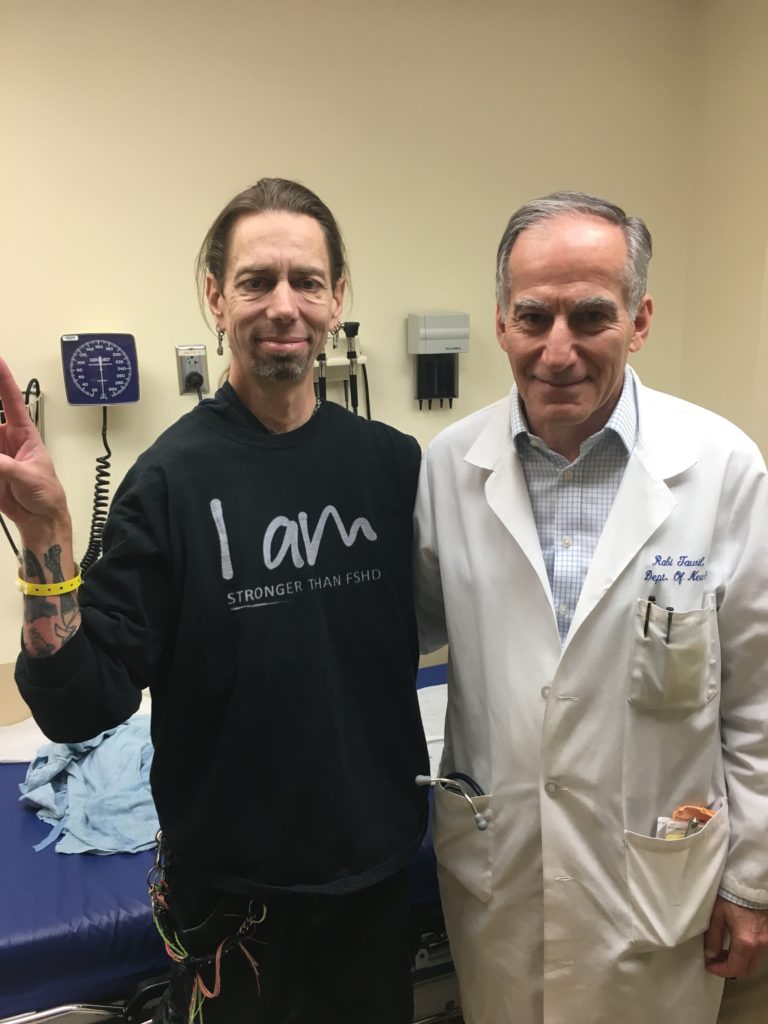
To crack the code of FSHD, patients are absolutely essential
All of the breakthroughs—the discovery of the genetic causes, understanding why some patients vary so greatly in the severity of their symptoms, teasing out the biochemical pathways that could point to future treatments—were made because patients stepped up to the plate.
Too often, we hear patients say they’ll volunteer when there’s a treatment. But we will never get to a treatment unless patients participate in fundamental research now. FSHD is uniquely human, so no laboratory mouse can ever fully model the disease. The genetic “package” that causes FSHD is found only in people. We owe an enormous debt to the patients who give DNA samples. Who submit to long interviews and exhausting physical tests. Allow a surgeon to cut out a small muscle sample. Who fight claustrophobia to lie in the narrow bore of an MRI machine.
Equally important are patients’ family members, both affected and unaffected, who provide the best experimental controls because of their shared genetic and environmental backgrounds. A parent or sibling who has very mild symptoms may hold the key to understanding the factors that protect against the full-blown development of FSHD symptoms in a more severely affected family member.
We are more hopeful today than ever before that a treatment is within sight. We cannot guarantee when that treatment will arrive, but here’s one thing we guarantee: If you volunteer for research, your participation will without question help move us a step closer to that day.
Scientific Overview of FSHD
Read the latest on wikipedia
Glossary of Scientific Terms
Volunteers within driving distance of University of California, Davis needed for research study on State-of-the-art clinical endpoints.
Volunteers within driving distance of University of California, Davis needed for research study on State-of-the-art clinical endpoints. Learn more about the study, inclusion criteria and how to get involved read… Read More »
High-profile paper on FSHD published in Cell
High-profile paper on FSHD published in Cell by Drs. Davide Gabellini and Daphne Cabianca in Milan, Italy. There are three distinct messages in the paper: 1. FSH Society funding leads to… Read More »
FSH Society funding leads to breakthroughs.
FSH Society funding leads to breakthroughs. High-profile paper on FSHD published in Cell. Cabianca et al., A Long ncRNA Links Copy Number Variation to a Polycomb/Trithorax Epigenetic Switch in FSHD… Read More »
Junk DNA may be responsible for FSHD and other examples of faulty gene regulation
FSH Society research fellows report in Cell that junk DNA may be responsible for FSHD and other examples of faulty gene regulation


